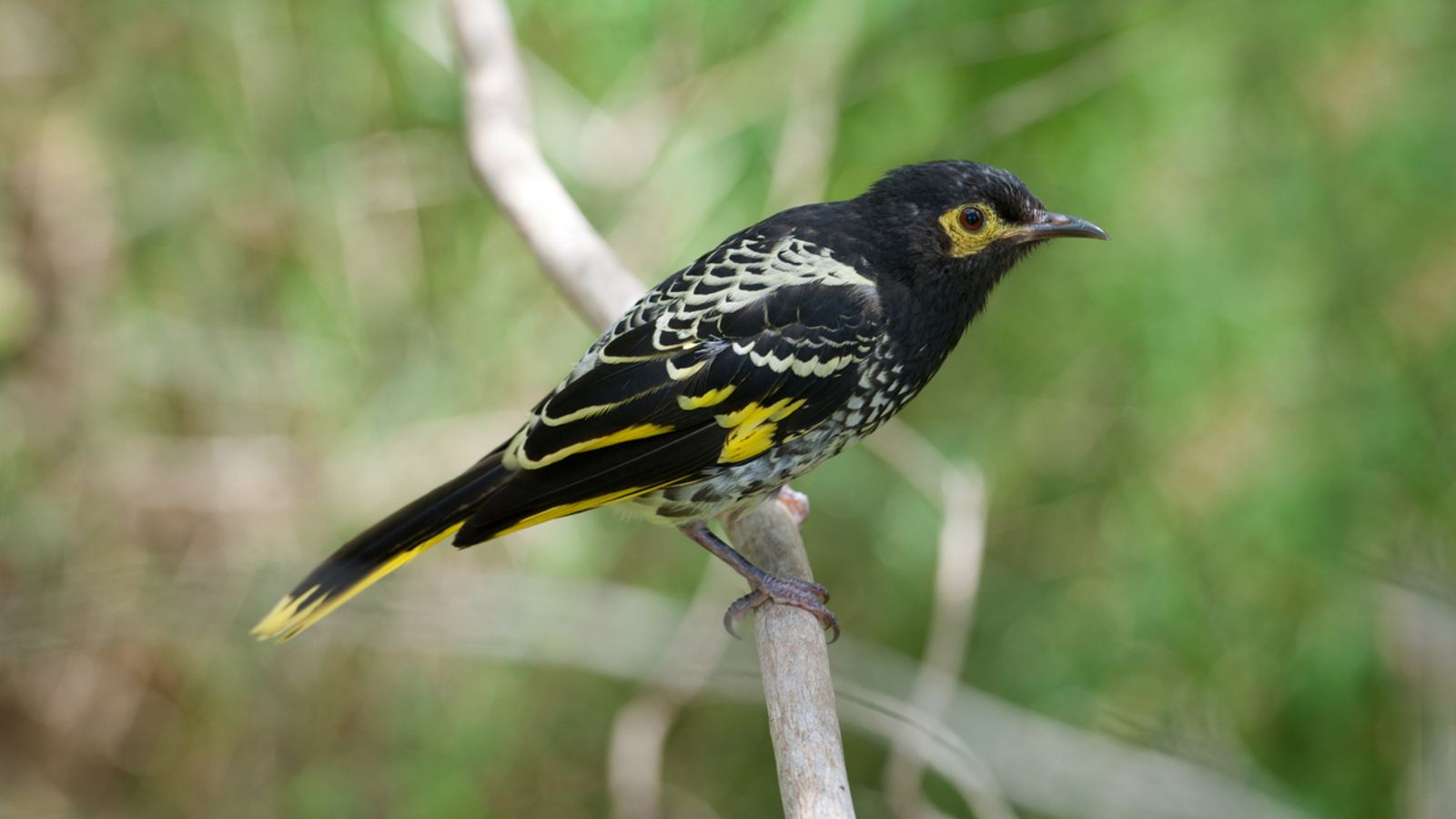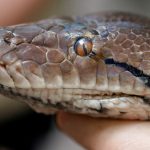A rare songbird’s existence is under threat because it is failing to learn how to sing love songs, new research suggests.
The distinctive black and yellow regent honeyeater – once common across Australia – is now a critically endangered species with just a few hundred of the songbirds left in the wild – and many fly solo.
Scientists now believe they know why the population is dwindling: They are at risk of losing their “song culture” with few father figure birds around to teach them mating songs.
Instead, young and impressionable male birds have been mimicking friarbirds and cuckooshrikes – and female regent honeyeaters aren’t impressed.
“Song learning in many birds is a process similar to humans learning languages – they learn by listening to other individuals,” said Dr Ross Crates, an ecologist based at Australian National University, who for five years has been tracking the singing ability and breeding success of the endangered regent honeyeater.
“If you can’t listen to other individuals, you don’t know what you should be learning.”
Most male regent honeyeaters spend several months in their first year learning and refining the songs they’ll recite for the rest of their lives.
Some learn from their fathers, but many leave the nest before they learn to sing so they need to find other mentors.
In research published in the journal Proceedings of the Royal Society B, scientists found a significant number are learning tunes exclusively from other species and producing mangled versions of those songs.
“We think the females are avoiding breeding and nesting with males that sing unusual songs,” Dr Crates said.
“This research suggests that the loss of a song language once the population reaches a very small size could accelerate their decline,” said Peter Marra, a conservation biologist at Georgetown University who was not involved in the study.
“When male birds sing, it’s like putting out an ad saying, ‘I’m over here, I’m species X, I’m Bob, and I’m really interested in finding a partner’,” said Scott Ramsay, a behavioural ecologist at Wilfrid Laurier University in Ontario, who was also not involved in the research.
It could be that female honeyeaters aren’t even recognising these unconventional singers as potential partners, and so they’re not approaching them, he said. Or it could be that they approach, “but then things go wrong if the males get courtship signals wrong”.
Dr Crates’s team has started playing male song recordings and also housed capable male singers next to learners to help young birds in captive breeding programmes learn their notes.
The hope is that these veteran vocalists will pass on their songs to the next generation.






















